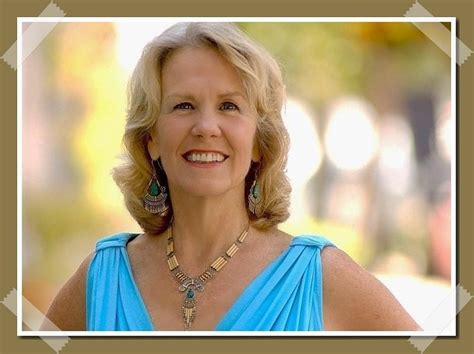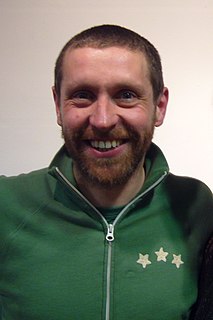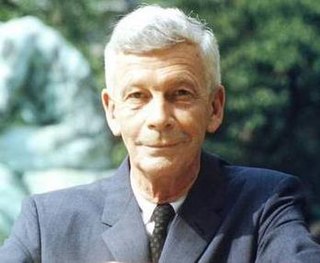A Quote by Lawrence Clark Powell
To achieve lasting literature, fictional or factual, a writer needs perceptive vision, absorptive capacity, and creative strength.
Related Quotes
When you're training as an actor, a lot of the big work you're learning is to treat fictional characters like real people. You don't have the problem of discovering a backstory with real people, but there's always a mystery which is common to both fictional and factual characters. They are never quite the person you think they are.
It is a juvenile notion that a society needs a lofty purpose and a shining vision to achieve much. Both in the market place and on the battlefield men who set their hearts on toys have often displayed unequal initiative and drive. And one must be ignorant of the creative process to look for a close correspondence between motive and achievement in the world of thought and imagination.
Productivity is a relative matter. And it's really insignificant: What is ultimately important is a writer's strongest books. It may be the case that we all must write many books in order to achieve a few lasting ones - just as a young writer or poet might have to write hundreds of poems before writing his first significant one.
Making reality real is art's responsibility. It is a practical assignment, then, a self-assignment: to achieve, by a cultivated sensitivity for observing life, a capacity for receiving impressions, a lonely, unremitting, unaided, unaidable vision, and transferring this vision without distortion to it onto the pages of a novel, where, if the reader is so persuaded, it will turn into the reader's illusion.
Philosophy, for Plato, is a kind of vision, the 'vision of truth'...Everyone who has done any kind of creative work has experienced, in a greater or less degree, the state of mind in which, after long labour, truth or beauty appears, or seems to appear, in a sudden glory - it may only be about some small matter, or it may be about the universe. I think that most of the best creative work, in art, in science, in literature, and in philosophy, has been a result of just such a moment.
The brilliant creative core of capitalism ... is the story the entrepreneurs and capital investors tell themselves about the future. How they intend to alter it, what they expect to gain in return, where they will raise the capital to accomplish their vision. Many of their stories turn out to be flawed or mistaken, of course, but the capacity to envision a set of future events and then act to fulfill them is a central source of capitalism's strength and its dominance of society.
Peace is not merely the absence of warfare, any more than true health is simply the absence of disease. Nor is peace simply a quiet state of equilibrium-impossible to achieve in an evolving system. Though refraining from harm is an essential first step, lasting peace is created by actively redressing harm done. Peace is a creative process of actively joining I and thou into a co-creative we. It requires authentic communication, empathic listening, and wildly creative solutions.
The writer is delegated to declare and to celebrate man's proven capacity for greatness of heart and spirit—for gallantry in defeat, for courage, compassion and love. In the endless war against weakness and despair, these are the bright rally flags of hope and of emulation. I hold that a writer who does not believe in the perfectibility of man has no dedication nor any membership in literature.



































